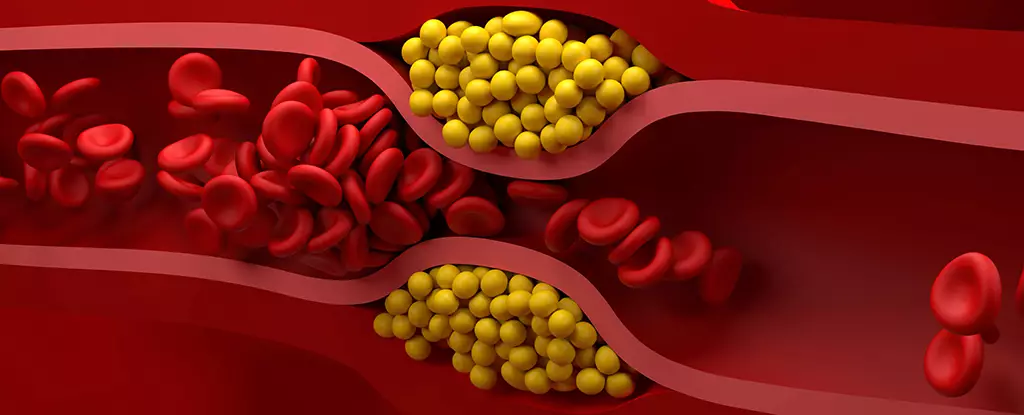High cholesterol has become a widespread health issue, affecting nearly two out of every five adults in the United States. However, a potential solution is on the horizon in the form of a new vaccine currently in development. This innovative vaccine aims to effectively and affordably lower levels of “bad” cholesterol in the body, which is associated with various cardiovascular diseases. With the ability to reduce LDL levels by targeting a protein called PCSK9, this vaccine shows great promise for tackling cholesterol-related health problems.
The vaccine being developed is based on a non-infectious virus particle. This particle acts as a shell, allowing for the development of vaccines against a wide range of conditions. In the case of high cholesterol, the vaccine works by targeting the protein PCSK9, which plays a crucial role in the regulation of LDL levels. Special receptors on liver cells are responsible for maintaining safe LDL levels, but an excess of PCSK9 can hinder their effectiveness, leading to elevated levels of bad cholesterol.
By combining minuscule amounts of PCSK9 with the non-infectious virus particle, the vaccine triggers an immune system response. This response specifically targets and neutralizes the PCSK9 protein, effectively reducing bad cholesterol levels. In tests conducted on mice and monkeys, the vaccine demonstrated the ability to lower LDL levels by up to 30%. Moreover, the vaccine shows comparable effectiveness to current PCSK9 inhibitors while potentially being more affordable.
A More Economical Solution
The researchers behind the vaccine are keen to develop a solution that is both cost-effective and accessible to a broader population. Current therapies for high cholesterol can be quite expensive, limiting their availability to certain regions or demographics. The vaccine, if successful, could provide a more affordable option that can be administered once a year. This would not only benefit individuals in the United States but also those in resource-limited areas that struggle to afford expensive treatments.
While the development of a cholesterol-lowering vaccine is undoubtedly exciting, researchers acknowledge that there is still a long road ahead. Extensive studies and trials in human subjects are necessary before the vaccine can be deemed safe and effective for widespread use. This next stage of research will require additional funding for further developments and testing. The potential positive impact on the millions of lives lost annually to cardiovascular disease makes this investment worthwhile.
A Promising Timeline
The timeline for the availability of the vaccine in human trials is estimated to be within the next ten years. This projection takes into account the rigorous testing and clearance processes required for new medical treatments. While the wait may seem lengthy, it is important to ensure the safety and efficacy of the vaccine before offering it to the public. The ultimate goal is to provide an accessible and effective solution to combat the global burden of high cholesterol-related diseases.
The development of a cholesterol-lowering vaccine represents a significant step forward in the fight against cardiovascular disease. With high cholesterol affecting a substantial portion of the population, this vaccine could potentially revolutionize how we manage and treat this prevalent health issue. By targeting and neutralizing the PCSK9 protein, the vaccine offers a promising avenue to lower bad cholesterol levels. While it is still too early to predict the exact impact this vaccine will have, the potential for a more affordable and accessible cholesterol-lowering solution offers hope for a healthier future.


Leave a Reply